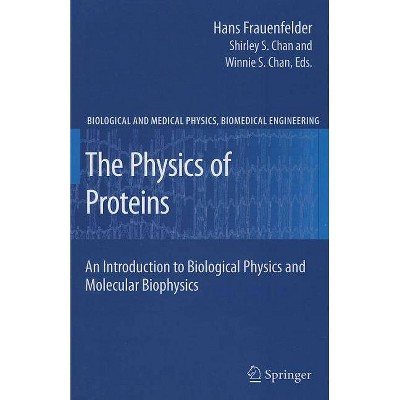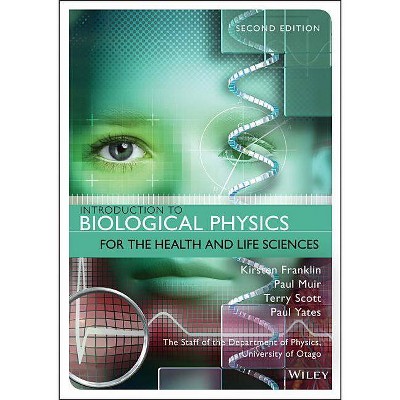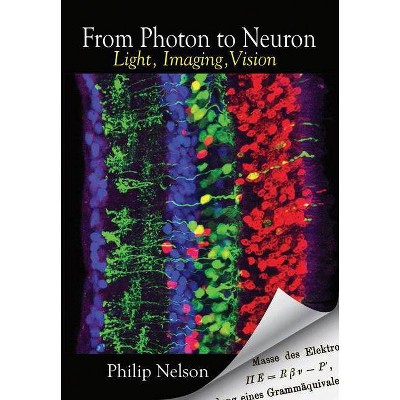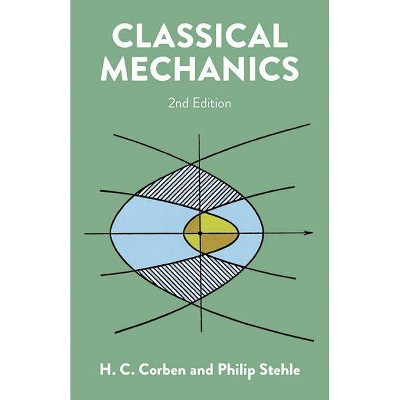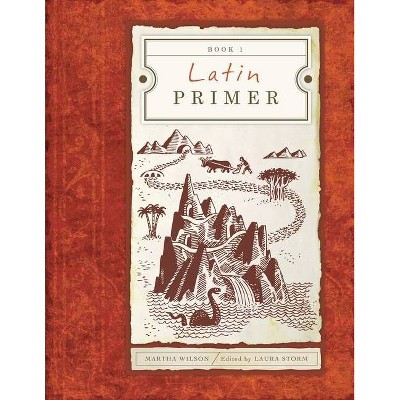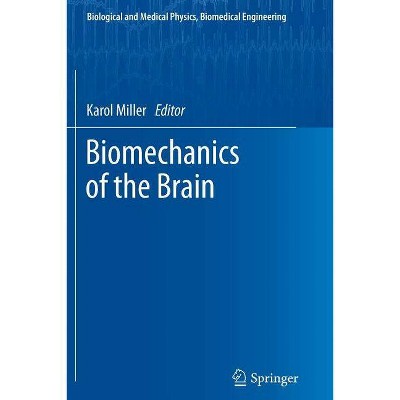Biological Physics Student Edition - by Philip Nelson (Paperback)
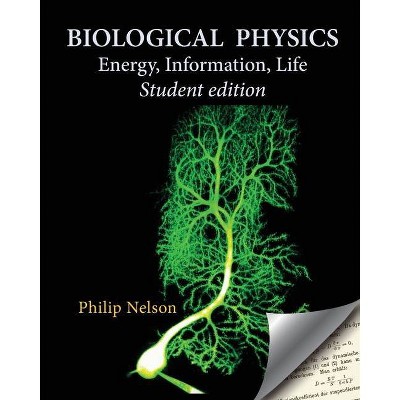
Similar Products
Products of same category from the store
AllProduct info
<p/><br></br><p><b> About the Book </b></p></br></br>Award-winning prof brings you from first-year classes to the frontier of single-molecule biophysics. Biological Physics is a university textbook focusing on results in molecular motors, self-assembly, and single-molecule manipulation, and integrates these topics with classic results in statistical physics, biophysical chemistry, and neuroscience.<p/><br></br><p><b> Book Synopsis </b></p></br></br><p><strong>Award-winning professor brings you from first-year physics and chemistry to the frontier of single-molecule biophysics.</strong><br><em>Biological Physics</em> is a university textbook that focuses on results in molecular motors, self-assembly, and single-molecule manipulation that have revolutionized the field in recent years, and integrates these topics with classic results in statistical physics, biophysical chemistry, and neuroscience. The text also provides foundational material for the emerging fields of nanotechnology and mechanobiology, and has significant overlap with the revised MCAT exam. This inexpensive new edition updates the classic book, particularly the chapter on motors, and incorporates many clarifications and enhancements throughout. Exercises are given at all levels of difficulty. Instead of offering a huge pile of facts, the discovery-style exposition frequently asks the reader to reflect on "How could anything like that happen at all?" and then shows how science, and scientists, have proceeded incrementally to peel back the layers of mystery surrounding these beautiful mechanisms. Working through this book will give you an appreciation for how science has advanced in the past, and the skills and frameworks needed to push forward in the future. <p/>Additional topics include the statistical physics of diffusion; bacterial motility; self-assembly; entropic forces; enzyme kinetics; ion channels and pumps; the chemiosmotic mechanism and its role in ATP maintenance; and the discovery of the mechanism of neural signaling. <p/></p><p/><br></br><p><b> Review Quotes </b></p></br></br><br><p><em>"Biological Physics</em> is the most interesting and well-written textbook I have ever read." -- Peter M. Hoffman, in <em>Life's Ratchet</em></p><p>"Philip Nelson's excellent text provides material for the types of course we should now be offering to all our students.... There are frequent comments about the way that modern ideas and techniques have emerged. As Nelson cleverly shows, many of the most important scientific breakthroughs have come about unexpectedly through just the type of interdisciplinary studies that this book promotes." -- Christopher Dobson, in <em>Nature</em></p><p>"This creative and insightful textbook brings definition to the field and establishes a set of central themes, based on principles of statistical physics.... Always maintaining a solid physics perspective, [the book] explores biological macromolecules, their structures and self-assembly, biomotors and locomotion, neurons, and more. The book is... a fascinating tour that will bring the reader within reach of many current research topics... It will intrigue both the student and the professor." -- Stephen Hagen, in <em>American Journal of Physics</em></p><p>"Dr. Nelson has done a splendid job conveying how principles of physics apply to biological systems." -- Donald Jacobs, California State University-Northridge</p><p>"Succeeds in explaining difficult concepts in words and then presents the mathematics in a clear way." -- Daniel Kim-Shapiro, Physics Department, Wake Forest University</p><p>"Discussion revolves around central ideas, which are developed clearly." -- William Parke, Physics Department, George Washington University</p><p> </p><br>
Price History
Price Archive shows prices from various stores, lets you see history and find the cheapest. There is no actual sale on the website. For all support, inquiry and suggestion messagescommunication@pricearchive.us
